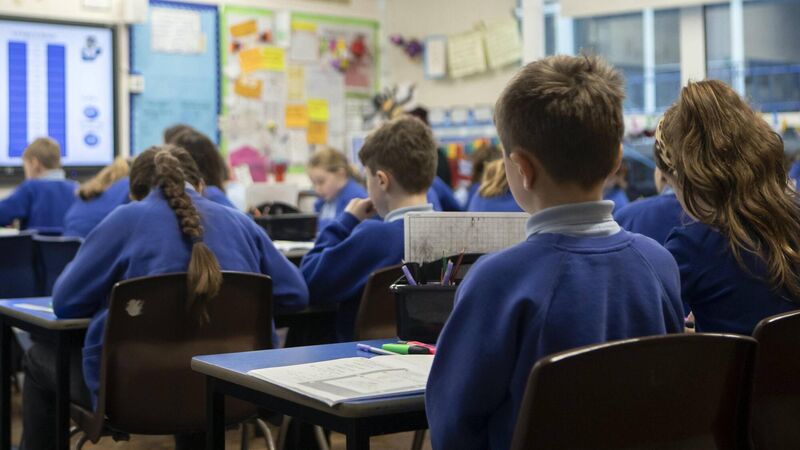What are we to believe with all the mixed messaging on Covid safety in schools?

At a time when the virus is utterly rampant in the community, parents will tell you they frequently don’t know how many cases are in a class. File picture
Try from €1.50 / week
SUBSCRIBE
At a time when the virus is utterly rampant in the community, parents will tell you they frequently don’t know how many cases are in a class. File picture
If the concept of the primary school parents’ WhatsApp group had not been invented before now, tens of thousands of them would have sprung into life over the past few weeks.
The frenzy of messages are relating to the often fruitless attempts to piece together the Covid scenario in a particular school. After all, parents all over the country have found themselves subject to the mushroom approach of being kept in the dark and fed plenty of you-know-what.
Already a subscriber? Sign in
You have reached your article limit.
Annual €130 €80
Best value
Monthly €12€6 / month
Introductory offers for new customers. Annual billed once for first year. Renews at €130. Monthly initial discount (first 3 months) billed monthly, then €12 a month. Ts&Cs apply.
CONNECT WITH US TODAY
Be the first to know the latest news and updates
Newsletter
Sign up to the best reads of the week from irishexaminer.com selected just for you.

Select your favourite newsletters and get the best of Irish Examiner delivered to your inbox
Saturday, February 7, 2026 - 9:00 PM
Saturday, February 7, 2026 - 11:00 PM
Saturday, February 7, 2026 - 12:00 PM
© Examiner Echo Group Limited